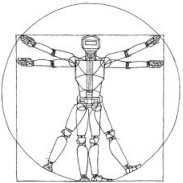Robotics: Science and Systems IX
Metastability for High-Dimensional Walking Systems on Stochastically Rough Terrain
Mehdi Benallegue, Jean-Paul LaumondAbstract:
Biped walking is a complex task, but usually with a natural limit-cycle behavior when walking on an even ground. However, perturbations during walking can make the robot fall. Several works addressed the issue of measuring the robustness to disturbances, and most methods study the effect of a single perturbation. But when walking, the disturbances can be multiple, such as walking on rough terrains. The metastability is a concept that helps studying the case of multiple disturbances. The performance measure is the expectation of the time during which the robot can keep balance. However, until today, only two methods permit to measure this metrics: the discretization of all the state-space and the Monte-Carlo sampling. The former one cannot address high dimensional state-space and the latter is too much time-consuming when the falls are rare. We propose here a solution for walkers with high-dimensional states, even when falls are very rares. The novelty of this method is to rely on the property that limit-cycle walkers may return to the limit-cycle several times before to fall. This method is even extended to the cases of bifurcations or chaos. We illustrate the performance of the approach with a simulated high-dimensional actuated walking system.
Bibtex:
@INPROCEEDINGS{Benallegue-RSS-13,
AUTHOR = {Mehdi Benallegue AND Jean-Paul Laumond},
TITLE = {Metastability for High-Dimensional Walking Systems on Stochastically Rough Terrain},
BOOKTITLE = {Proceedings of Robotics: Science and Systems},
YEAR = {2013},
ADDRESS = {Berlin, Germany},
MONTH = {June},
DOI = {10.15607/RSS.2013.IX.009}
}
